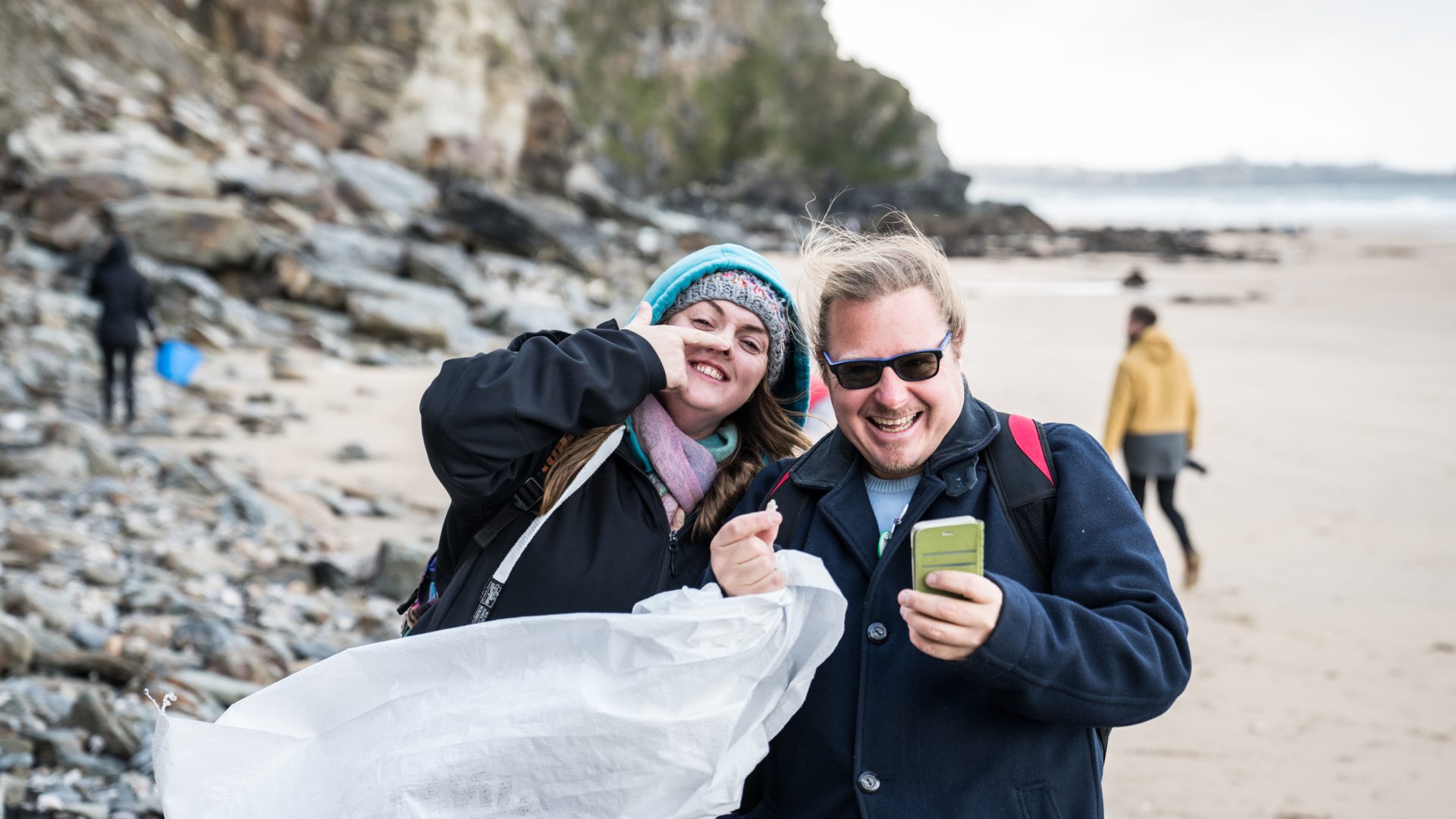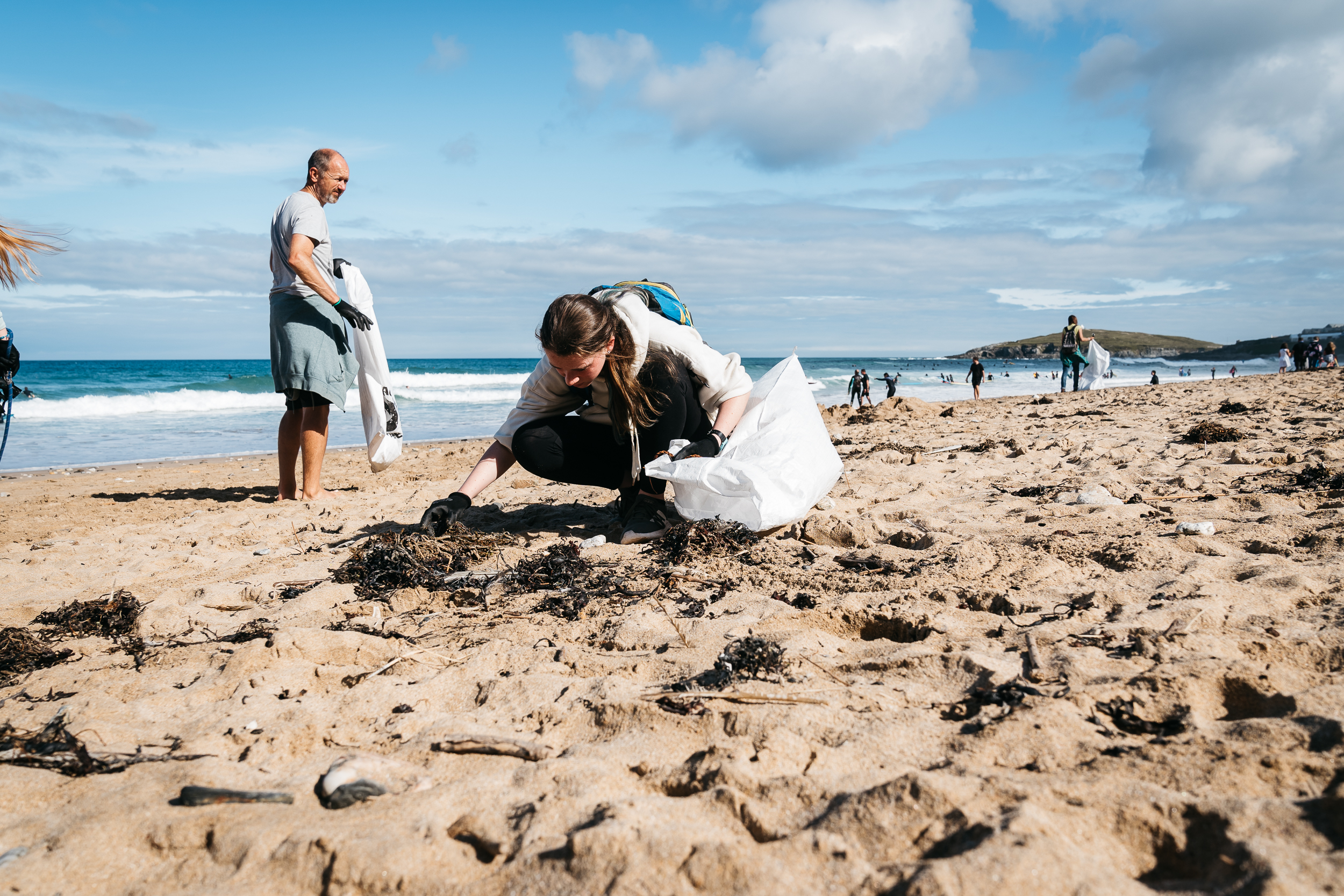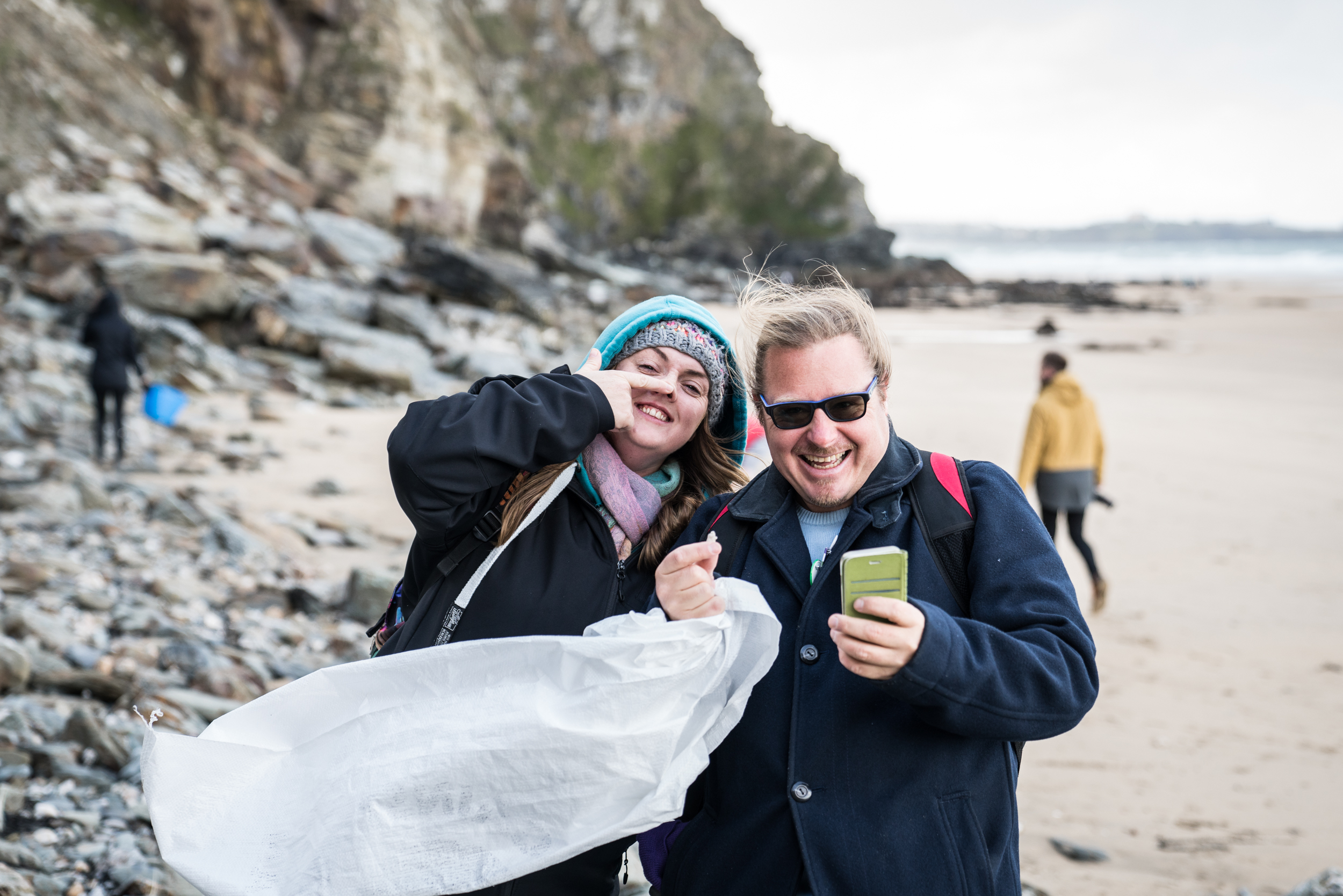
The Benefits of Beach Cleaning on Mental Health and Well-being

Photo by Ian Lean
Our health is affected in countless ways by the environment we live in – from the quality of the air we breathe to the ocean we enjoy playing in, environmental factors can have a major influence on our health. Every year, a staggering 8-13 million tonnes of plastic is estimated to enter our ocean, so maintaining a healthy and thriving environment has never been so important.
Across scientific literature, there is increasing support for the use of pro-environmental volunteering as a way to overcome these ecological and public health challenges, as it can simultaneously improve environmental quality and human health and well-being. Taking part in pro-environmental activities or just getting out and being active in nature has been proven to lower blood pressure, reduce stress and improve mood, but there is also evidence to suggest it can help eliminate fatigue, boost focus and even improve short-term memory.
Personally, I have always found beach cleaning to be a very positive experience, despite it opening my eyes to the wide-spread problem of plastic pollution. It makes me feel energised and reminds me that I am making a positive difference, however small. Last year, I teamed up with Surfers Against Sewage to conduct research into the benefits of volunteering on mental health and well-being. I wanted to collaborate on a project that would provide the evidence needed to demonstrate these benefits and inspire more people to engage in local beach cleans.
The project hoped to address a gap in current research by sending out a digital survey to all volunteers, investigating the social and well-being benefits received from participating in beach cleaning activities.
The objectives of this study were:
- To understand why people volunteer
- To identify how volunteering affects well-being and how it may vary between voluntary role, age, location and time spent beach cleaning
- To gather information on what type of plastic pollution affects their volunteering experience the most
- To investigate volunteers’ thoughts and feelings after they have completed a beach clean

Photo by Ian Lean
The results indicated that older age groups feel more optimistic after a beach clean, a factor of increased well-being. Similarly, gender was shown to affect volunteering motives and the well-being benefits gained from beach cleaning. When volunteers were asked to recall thoughts and feelings after their most recent beach clean, the majority of comments were positive and showed an increase of subjective well-being.
83% of volunteers felt that taking part in beach cleaning activities allowed them to help a cause which they feel strongly about and 37% of volunteers agreed that being part of a team is an extremely important reason that motivates them to volunteer.
The project highlighted that participating in voluntary beach cleans can be extremely beneficial in terms of improved well-being, but to what degree depends on demographic factors. Beach cleaning can provide volunteers with a means to make a positive difference to a cause they feel passionately about and leaves them feeling informed about the impacts of plastic pollution.
With upwards of 5000 individual items of plastic pollution per mile of beach in the UK, the need for beach cleans has never been greater. Now more than ever before, we must take care of our mental health and well-being, as well as the environment we live in.
If you’re interested in joining a beach clean, head to www.beachcleans.org.uk to find an upcoming clean near you. To read the full report, please click here.
Written By Jennah Brimacombe
